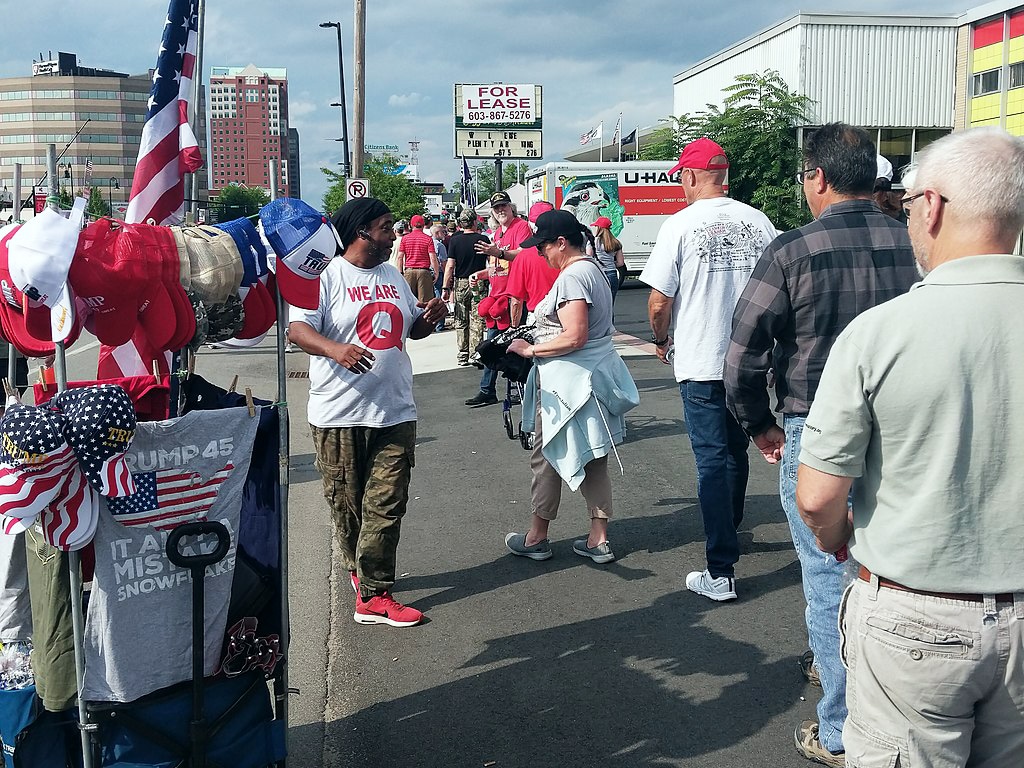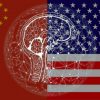
No one knows who Q is, but he has engendered a conspiracy movement in the US (accompanied by reflections, or refractions, in Europe that require monitoring) that predates the pandemic but has grown spectacularly amid the lockdowns and the economic and social crises. Is he an individual or a group of people? Is he the outcome of a malicious use of artificial intelligence trained with conspiratorial posts? Is there a foreign power in the background? There are various theories, none conclusive. What is clear is that he has given rise to a movement, a conspiracy theory, QAnon (the Anon comes from ‘anonymous’). The FBI indicated how seriously it viewed it by describing it, in an internal memo from 2019, as ‘a potential national terrorist threat’. QAnon is partly the offspring of social media, from which it has proved difficult to eradicate, although Reddit has deleted it from its service, Twitter has suspended thousands of related accounts and Facebook has taken steps in the same direction.
In just a few years, and much more intensively in the months of pandemic, this Internet and social media agitator has amassed a remarkable following that can be counted in the hundreds of thousands, although it is difficult to give an exact figure because his sympathisers are often conflated with those who follow his ‘drops’ (as his posts, now numbering 5,000, are known). Employing coded language open to many interpretations, he uses these to, among other things, unpick the conspiracies he perceives against Trump, turning him into the movement’s hero. He seeks to defend the President from the ‘deep state’, an elite of bureaucrats, intelligence agencies and high-ranking military who, according to Q, conspire against Trump. With his own name, Q hints that he is a senior mandarin with a high level of clearance to access official secrets. Maintaining his anonymity is essential for his credibility among his followers.
It seemed like a marginal phenomenon until it entered public debate and became mainstream, something that makes it more difficult to counteract. It may have consequences for what happens on 3 November and its aftermath, because in some of his recent ‘drops’ Q has been calling for a popular armed uprising should Trump –after a fraud perpetrated by the conspirators, as he sees it– lose control of the presidency.
This story starts with what is known as ‘Pizzagate’, which predates it but went viral on the social media after Trump was elected in November 2016. According to this conspiracy theory, Hillary Clinton and other Democrats were to be arrested for operating a global network devoted to trafficking children for paedophiles from the basement of the Comet Ping Pong pizza restaurant in Washington. It culminated in Edgar Welch entering the restaurant on 4 December 2016 armed with an assault rifle; on seeing it was not what he suspected (it does not even have a basement), he handed himself in to the police. Incredible as it may seem, however, wild rumours concerning the abuse and slaughter of children by a Democrat clique persist.
Q’s conspiracy theories, by which he seeks to establish a new world order, are complex. As might be expected, his foreknowledge is fallible and riddled with contradictions, but this apparently matters little to his supporters. Up to 56% of Republican voters, according to a recent poll, believe that Q’s conspiracy theory is mostly or partly true. He has invoked the idea of ‘the calm before the storm’, referred to on occasion by Trump himself, who has retweeted some of the messages and comments made by QAnon followers. Some of these self-professed sympathisers have entered politics, such as Marjorie Taylor Greene, a Republican candidate in Georgia. The child trafficking issue has lent the movement a certain air of normality: as a Bloomberg article asks, ‘who can oppose a movement to #SaveTheChildren?’. But it is surprising that such rumours surrounding Democrats –which even the senator for Texas, Ted Cruz, has signed up to– should be so deep-rooted.
Q and his cryptic messages first appeared in October 2017 in the marginal 4chan forum (later moving to others). But it has been with COVID-19 and the lockdowns that interest in QAnon and associated online activity has mushroomed. According to the Mother Jones website, the number of tweets with the QAnon hashtag doubled between 2019 and April 2020, when the first wave of the pandemic, lockdowns and business closures were taking effect. Coronavirus fuelled it. Analysts have often detected a relationship between anxiety and conspiracy theories in hard times such as these. QAnon is attracting a section of the coronavirus deniers as well as opponents of vaccines and the Black Lives Matter movement.
Many on the right find QAnon excessively extremist, even though they believe in the existence of a deep state that conspires against Trump. For Kevin Roose, of The New York Times, QAnon is not, strictly speaking, a political movement. But as Quassim Cassam has rightly pointed out, the function of conspiracy theories is to promote a political agenda. Another observation that has sometimes been made is that they are akin to a ‘massive multi-player online video game’, in the sense that they create settings of purported reality shared by many others. For Adrienne LaFrance, in a lengthy analysis in The Atlantic, it is not simply a conspiracy theory but rather the ‘birth of a new religion’. Of course, it features its true believers. And it has borrowed certain expressions from evangelical and eschatological movements, such as the idea of the ‘advent’ of a golden future –for them–. LaFrance notes that the historian Norman Cohn in his famous 1957 book The Pursuit of the Millennium: Revolutionary Millenarians and Mystical Anarchists of the Middle Ages postulated that apocalyptic thinking emerged in regions and periods of profound social and economic upheaval and of highly conspicuous inequalities in wealth. Such as we are now experiencing.
The US is much given to conspiracy theories, which have sometimes had a basis in truth. They have not needed to be so much plausible as contrarian. They are currently thriving in the breeding ground created by Trump himself with his fake news and some flirting with the QAnon movement. They reflect a lack of trust in the establishment, from which Trump has contrived to distance himself, despite being the commander-in-chief and one of its top businessmen. QAnon is much more than a marginal phenomenon. We could be witnessing what the Spanish philosopher Miguel de Unamuno used to call a ‘protophenomenon’.


